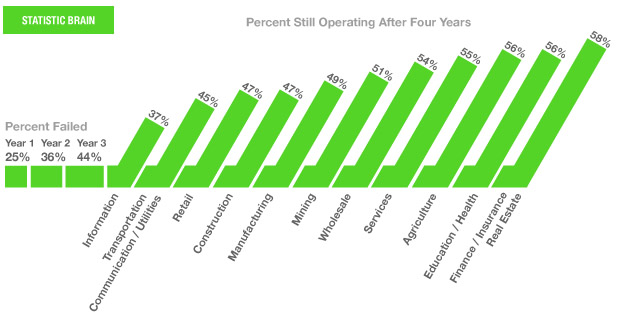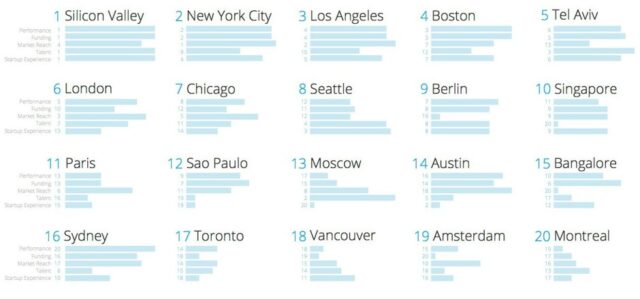
hThe USA Startups companies are becoming more and more popular lately. Why? Well, because of all the benefits that they can offer. What exactly are those benefits? And what technology to choose when starting a startup company? And are there any disadvantages of a startup? Keep reading to find all of that out and to inform yourself about startup companies.
Before I start with anything I think you should know what the startup actually is. The startup can be defined in many ways. Warby Parker CO-CEO Neil Blumenthal said that startup is a company that is trying to solve some problem where you simply can’t find an obvious solution. Some people say that startup is an instance of some setting that is in motion or operating. Some dictionaries explain startup as some business that just started with their work. Everything I just mentioned is true and no one is wrong. The basic definition of the startup is that it is a young company that just started with its work and is developing slowly. Startup companies often operate with a small number of employees and often have limited finances.
So, if they have limited finances you are probably wondering how they can operate? Because of investors. Startup companies are often financed by some other business or with loans from banks or government administration. You can realize why that investment is a high risk. When presenting their product or service, founders of a startup company must show exactly how their product will succeed on the market and return the invested money.
Now you know what a startup is? Great, but have you figured out all the advantages or disadvantages that startup brings?
Startup: Good and Bad
Sometimes it can be better to start your own company or get a job with some startup than accepting some job from established business. Imagine that you have an offer from a popular company that will get you good money and stable job, sounds good, right? And on the other side, you have an offer from some small startup. Which one do you take? Even if you believe in that product from startup company and believe that it will be successful you would probably pick the other job. When you look at it that way it is a good choice. But maybe you made a choice. Here are just some benefits you can get from a startup company:
- Responsibility – most of the people like responsibility. If a startup company approached for you then you probably have some skills they are missing and no one else can do what you do. All the work in that area will be done by only you with no one messing with your work too much. It probably won’t be the most important part of the project but without it (without you) the whole project would fall apart. And everyone likes to have some power.
- Work areas – when you get a job in some corporate company you will probably do just that one thing or maybe some other. While with the startup you will most probably work in more different areas and there will be a chance to learn new things and improve your knowledge.
- Atmosphere – most of the time it is easier to work with 10 – 20 people than with more than one hundred. You will get to know everyone very well and you can be more personal with everyone. The rules are often different too. You don’t have to act and dress all formal, you can make jokes and play games or even drink beer (you didn’t hear that from me).
- Credit for work – when you do something really well in some big company the chances are that your boss will get all the credit for it. But if you mess up you will be the one to get fired. In startup company you simply can’t do something right (or wrong) and not get credit for it. It is a small team and everyone will praise you. And if you fail everyone will notice it and laugh at you, that’s why you have to do everything right.
- Confidence – almost everything I mentioned above will lead to increased confidence. When you succeed with some final project the line “We wouldn’t be able to do it without you” is actually true and everyone will actually mean it. Another thing you will probably learn is that being creative and always trying to work hard pays off.
So, thinking about starting or joining a startup company? Wait just a minute and read the disadvantages first.
- Money – this one is pretty obvious. Your salary will probably be much smaller than with some corporate company. Until the product of your startup company succeeds and starts making some serious profit your salary will be small or even equal to zero.
- Job Security – just like I already mentioned, startup companies have limited finances and survive month to month. If a company can’t meet the expenses for the next month someone will probably lose a job. Or the whole project will simply be shut down.
- Responsibility – yeah! I mentioned this one with benefits but it is important to know that it can be a bad thing too. When working in a startup company you have a job to do and one on will mess with it because they probably don’t know how to do it. But that also means that you can’t ask anyone for help and you must do everything. And have to do it on time because there are more and more things to do every day.
- Teamwork – if you don’t like someone in your team then the chemistry is gone and the project will fail. You will have to work with the same group of people every day and night so be ready for it.
- Work areas – another one that can be the advantage and disadvantage. You will learn new stuff and improve your knowledge but there is a possibility that you will have to do something you know nothing about. Imagine that you are a writer and your job is only to write articles and send it to a designer that will design everything else and place that article in the newspapers. And one day the designer is sick and you have to do his job. But you know nothing about designing. Which color to use? What font? Where to place the article? Always be prepared for different and unexpected tasks.
- Training – large companies often have a training course that lasts for a few days or weeks and introduces you to your job and responsibilities. Startup companies don’t have that and you are thrown into the fire on your first day.

I can write more about both good and bad stuff about startup companies but I think I said enough about it and helped you to learn something new.
Leading cities in the world
Do you know what the biggest startup cities in the world are? The first two cities are obviously San Francisco with its Silicon Valley and New York. Those two are followed by another two cities in the US, Los Angeles, and Boston. On the fifth place is the first non-US city, Tel Aviv, followed by London in the UK. Another two US cities clinched their spot in top 10, Chicago and Seattle. Berlin in Germany is on number 9 and the last top 10 city is Singapore. Check the picture below to see more details and the rest of the list. The whole study about world’s leading startup cities was based on five different aspects. The first one is performance, followed by funding, market reach, talent and startup experience.
America study
A study made by Angel List revealed a lot of interesting information about a startup in the US. That research showed us what cities in the US are most popular for startup companies, what technologies are used the most and which domains and startup companies are using the most.
Let’s start with cities. The first two cities are obviously New York and San Francisco with 13.1% and 12.83% of startups per city. After them, we have Los Angeles (5.96%), Boston (2.89) and Chicago (2.79), which I already mentioned above. After them, we have Austin and Palo Alto with 2.23% and 1.98% of startups per city. The list is closed with Washington (1.87%), Seattle (1.82%) and Atlanta (1.82%). Some cities that are also very popular for startup companies but weren’t mentioned in this study are Salt Lake City that suits perfectly for software and hardware products, Baltimore that is great for education products, Nashville which is becoming a “Media City” and Kansas City.
When talking about industries that startup companies are using it is important to say that mobile industry dominates everything. The “close” followers are e-commerce and social media industry while software, digital media and enterprise software are a little behind them. About 7% of startups are related to social media. That number is actually pretty small when you see how much social media controls our life. About 0.51% of startups are related to mobile game development while 0.21% of startups are online dating services. And about 0.13% of startups deal with marijuana.
I don’t have to talk much about domains because it is obvious that .com dominates here. About 82.6% of startups use that domain. 3.4% of startups use .co, 2.14% use .org and 1.92% use .net.
To find more information about startups in the USA check the infographic below. Enjoy!
















